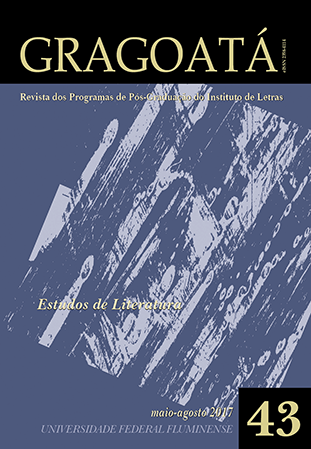On Whales and Giants: Images of Leviathan in New Model Army and The Unwritten
DOI :
https://doi.org/10.22409/gragoata.v22i43.33498Mots-clés :
Symbol. Representation. Leviathan. Moby-Dick. Social body.Résumé
Fantastic and science-fictional narratives employ specific modes of representation. In both genres, figurative language can be used in a literal sense, so that symbols acquire a concrete representation in the text. The aim of this article is to examine how a specific image, the giant Leviathan as a metaphor for the aggregation of individuals in order to form the social body, is explored in two genre narratives. In the science fiction novel New Model Army, by Adam Roberts, the image of Thomas Hobbes’ Leviathan is used to suggest the notion of a radical democracy in which all members of the community have an organic participation in the social body. In the graphic narrative The Unwritten, by Mike Carey, Peter Gross and Vince Locke, Hobbes’ Leviathan is explored in conjunction with Melville’s Moby-Dick in order to investigate the nature of symbolic representation and the relation between culture and objective reality. The appropriation of the metaphor of the Leviathan as a concrete symbol determines the way the two narratives develop their main themes and articulate their meanings.
---
DOI: http://dx.doi.org/10.22409/gragoata.2017n43a943.
Téléchargements
Téléchargements
Publiée
Numéro
Rubrique
Licence
AUTORIZAÇÃO
Autores que publicam em Gragoatá concordam com os seguintes termos:
Os autores mantêm os direitos e cedem à revista o direito à primeira publicação, simultaneamente submetido a uma licença Creative Commons Atribuição 4.0 Internacional (CC BY 4.0), que permite o compartilhamento por terceiros com a devida menção ao autor e à primeira publicação pela Gragoatá.
Os autores podem entrar em acordos contratuais adicionais e separados para a distribuição não exclusiva da versão publicada da obra (por exemplo, postá-la em um repositório institucional ou publicá-la em um livro), com o reconhecimento de sua publicação inicial na Gragoatá.
A Gragoatá utiliza uma Licença Creative Commons - Atribuição CC BY 4.0 Internacional.











